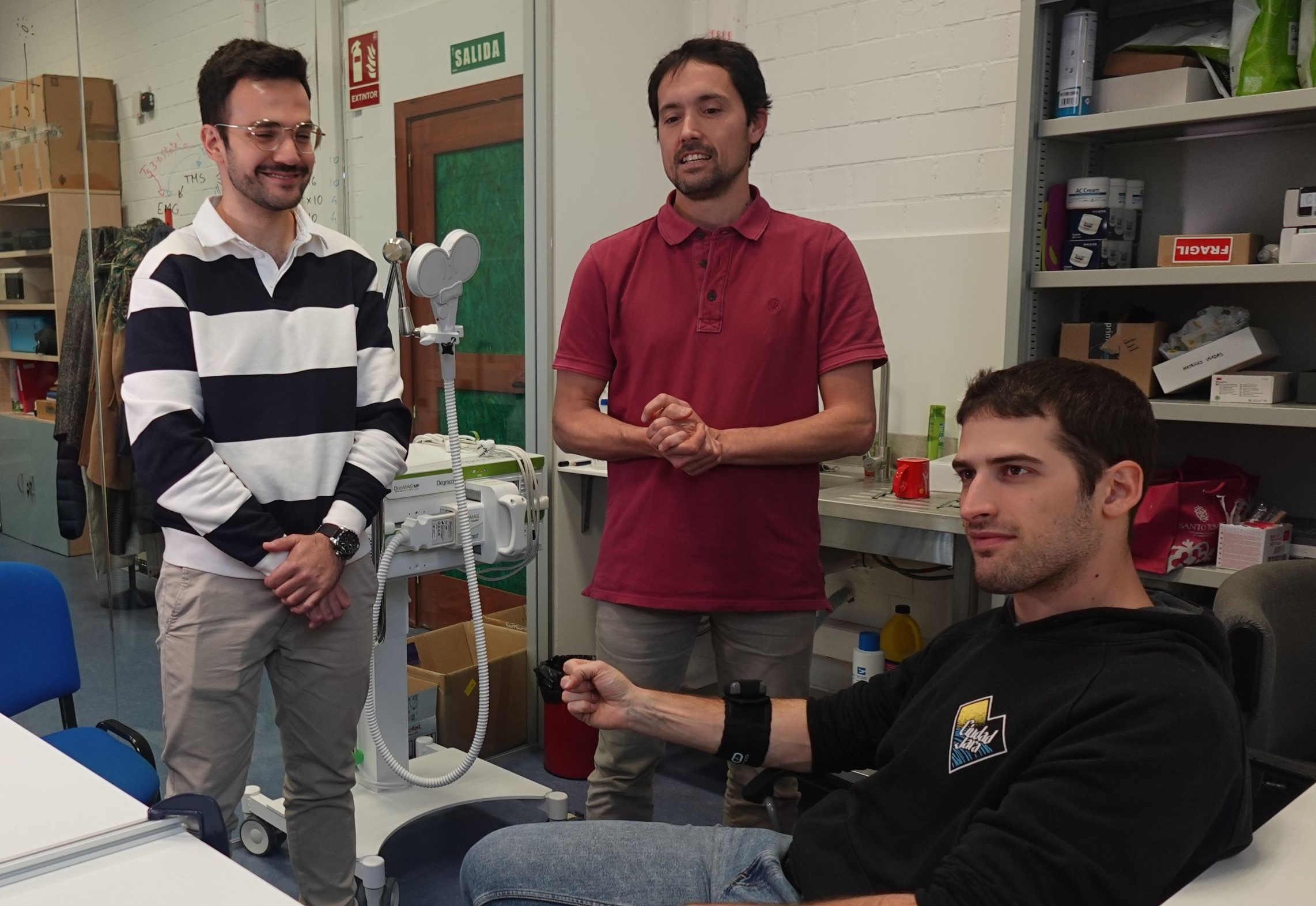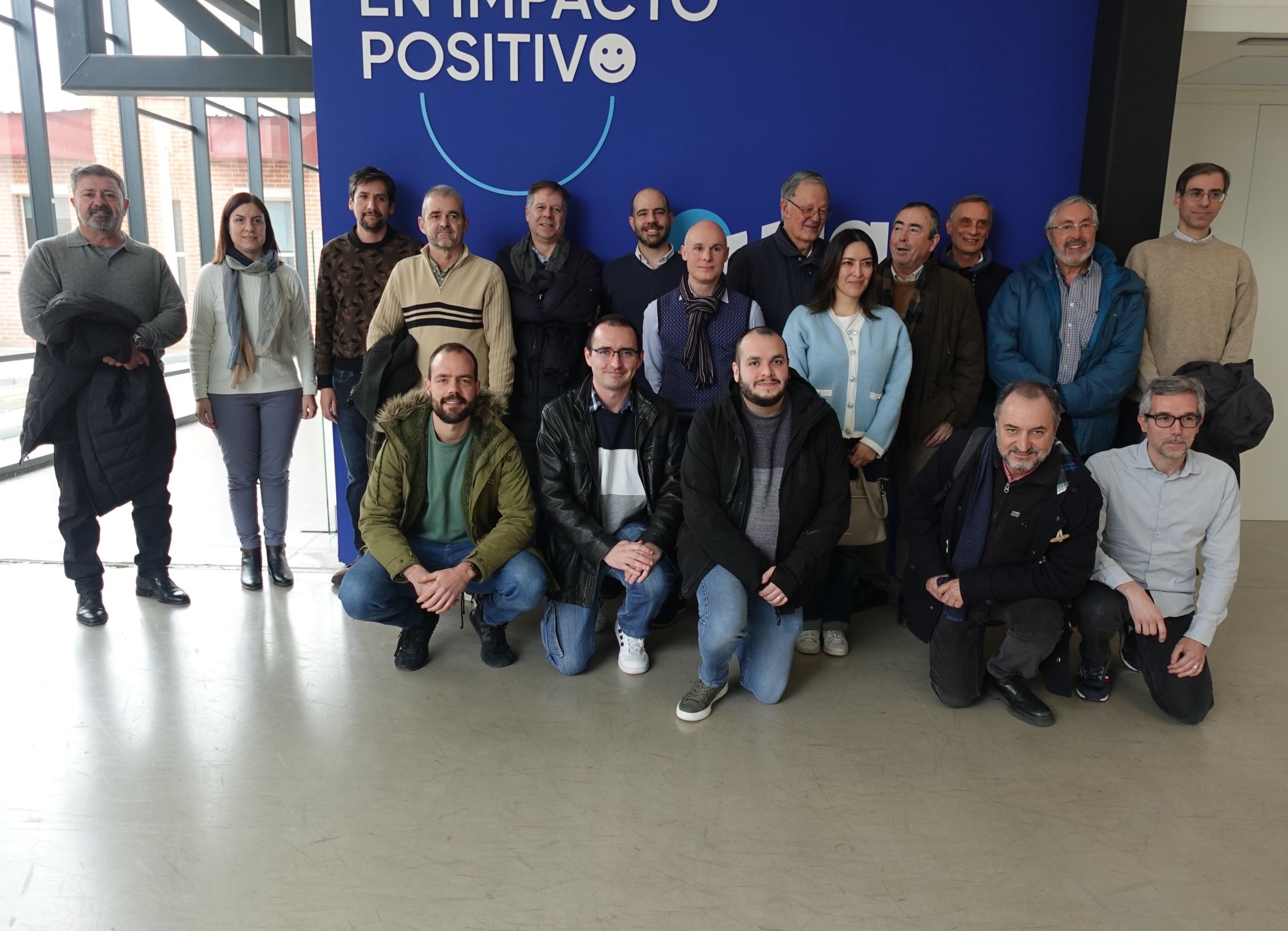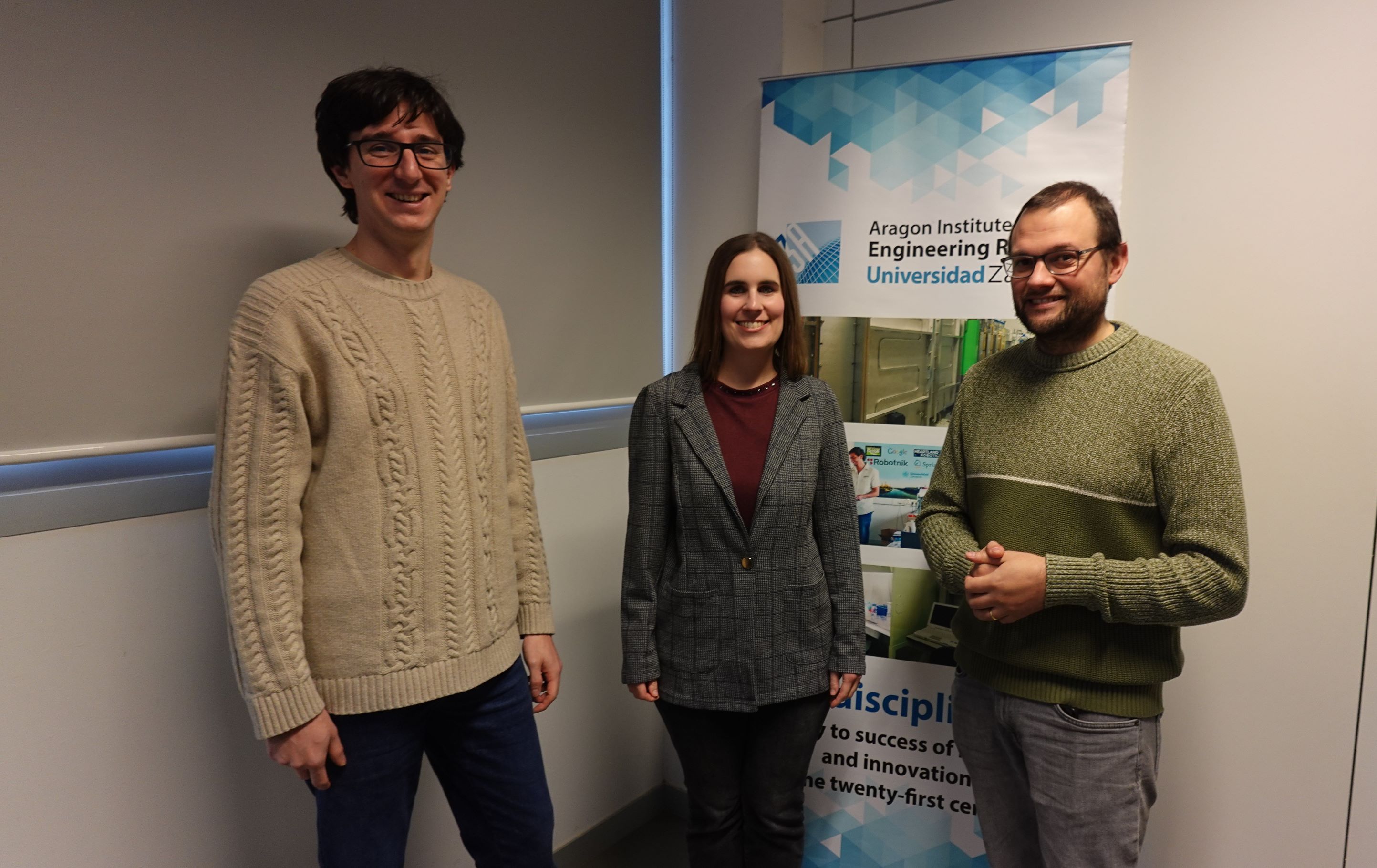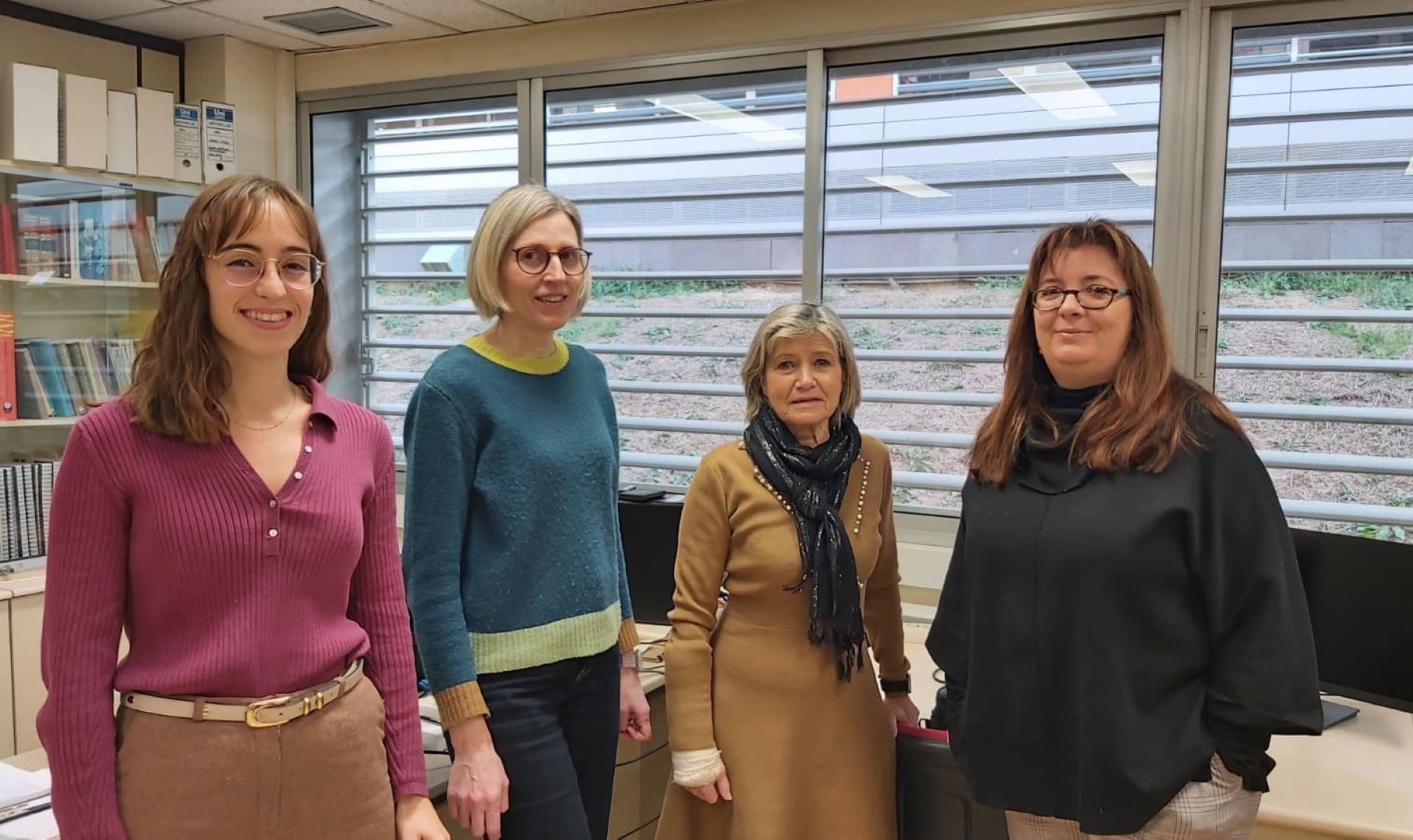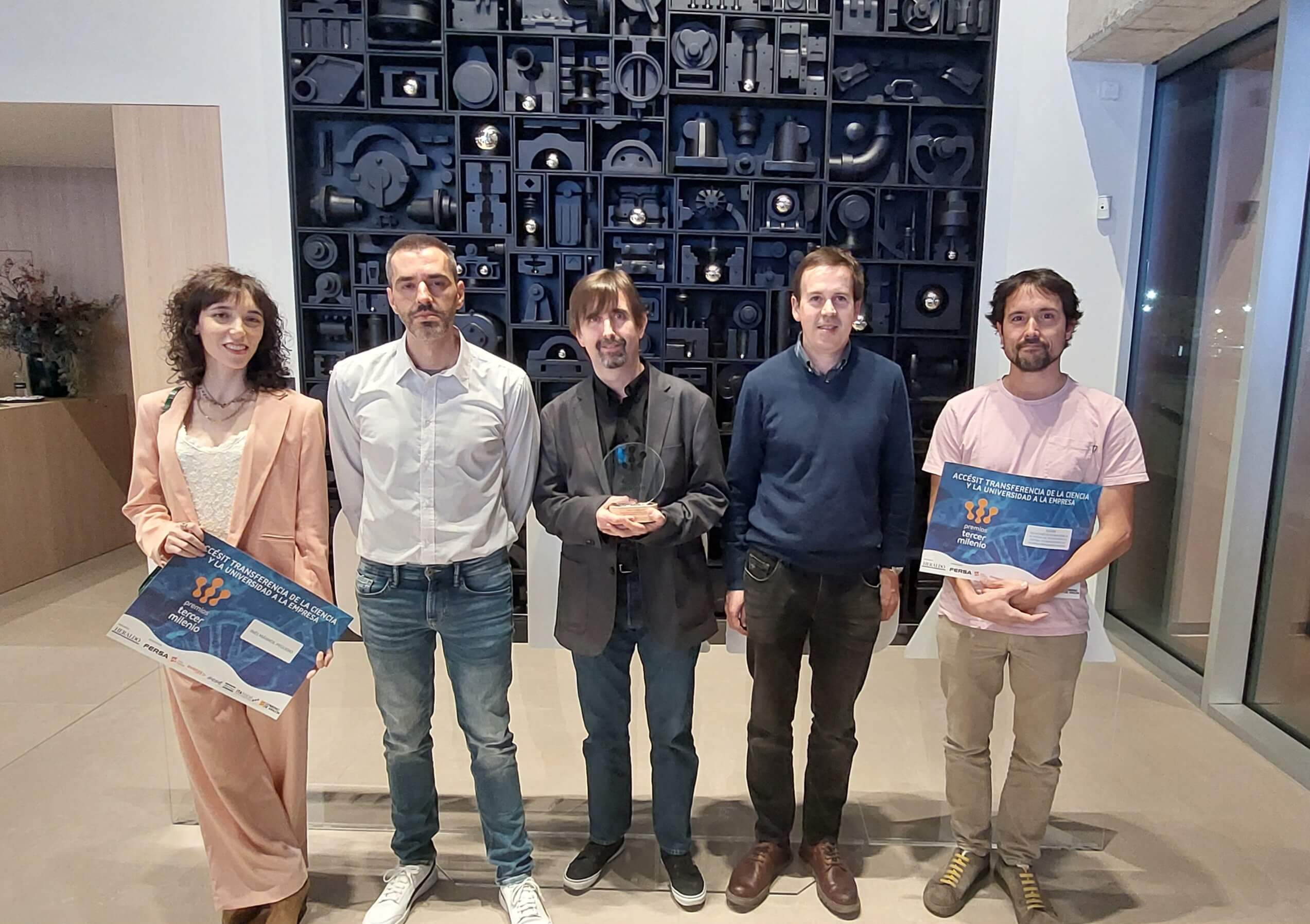
The research carried out at the I3A was recognised last night at the celebration of the Third Millennium Awards, which Heraldo has been promoting for the last nine years among the Aragonese research community, from the youngest to the most consolidated trajectories, with knowledge transfer, innovation and scientific dissemination.
The Fersa Lab building in Plaza hosted this event in which the Advanced Information Systems group (IAAA) received the "Transfer of Science and the University to Business" award, which was collected by the group's director, Francisco Javier Zarazaga Soria. The transfer has always been the main focus of the work of this I3A research group founded by Professor Pedro Muro.
Since its foundation in 1993, the IAAA has always been working with the premise of focusing its R&D results on an effective transfer to industry, public administrations and society in general. In this way, the research group has maintained contracts with more than 50 companies and public administrations, including the Government of Aragon and the City Council of Zaragoza, the Ebro Hydrographic Confederation, the European Space Agency, EUROSTAT and Iberdrola, among others.
In addition to the many collaborations with companies, the IAAA launched in 2007 the spin-off GeoSpatiumLab S.L. (https://www.geoslab.com) as a way of increasing their capacity to transfer research results to society. On the other hand, it is well known in the field of technology clusters in Aragon. Numerous initiatives have been launched with them, especially with CAMPAG, ZINNAE, TECNARA and ARAHELTH. For the group, technology clusters are a fundamental tool for the dynamisation of innovation in companies.
The Advanced Information Systems group of the I3A has become a reference group in the field of its research at international level. Proof of this is the co-direction of theses with researchers from CERN (European Organization for Nuclear Research) or the JRC (Joint Research Centre), participation in numerous European projects of different Framework Programmes, as well as other agreements and collaborations with other universities and research centres in Europe and Latin America.
In the "Young Talented Researcher" category, the Third Millennium Awards recognised Inés Mármol Peguero with a runner-up prize. Inés Mármol holds a PhD in Biomedical and Biotechnological Sciences and is currently researching the possibility of combining gold(I) complexes with plant extracts to increase the efficacy and safety of anti-tumour treatment, with a postdoctoral contract in the TME Lab group of the Aragon Institute for Engineering Research (I3A). Throughout this year, she has also been awarded the National Youth Award 2023 in the "Science and Technology" category, and the José María Savirón Award for Scientific Dissemination in the "Young Disseminator" category.
In the "Research and Future" section, the ECHOES project received the runner-up prize for its work on the measurement of neuronal activity in humans, awarded to the head of the research, Jaime Ibáñez Pereda of the BSICoS group of the I3A. In May this year, ECHOES was awarded an ERC Starting Grant, the most competitive and prestigious grant from the European Research Council (ERC). The funding of one and a half million euros will allow over the next five years, "to study muscle activity as a window to the brain, to investigate the origin and relevance of neural signals generated by the brain and spinal cord," says Jaime Ibáñez.
For this reason, a research laboratory has been set up in Neurosciences, Neuroengineering, Computational Neuroscience and Neurorehabilitation and a research team of five professionals from different fields. The basic research to be carried out may lead to the development of new technologies of relevance in the clinical and industrial fields. To this end, the project also includes collaborations with important groups in other countries such as the United Kingdom.
